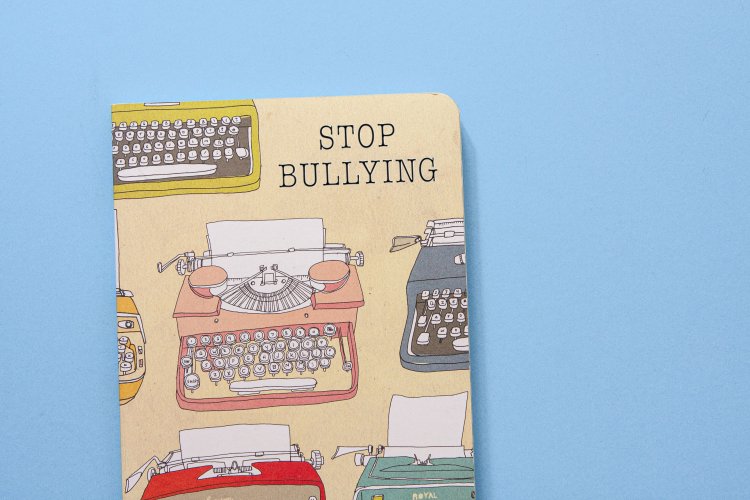For Students
5 Things You Should Be Vocal About With Your Teacher
- Apr 29, 2022
- 0
- 1981

When you’re facing problems in school, who do you talk to? Most students find it difficult to open up to their teachers or parents if they’re feeling low. It is globally estimated 1 in 7 adolescents experience mental health issues due to negative experiences left unaddressed in school. To make matters worse, 60% of high school students with mental illnesses don’t even graduate.
A teacher interacts with students day in and day out for years on end, which means they often give advice to students on how to navigate their school life. Hence, a teacher is the right person to approach when dealing with certain personal issues. If you keep bottling up your emotions, it could lead to a severe deterioration in academic performance and overall mental health. Talk about what you’re feeling; it could be anything under the sun. Here are five school-related issues safe to discuss with your teacher, without violating student-instructor boundaries.
1. Difficulty in Understanding Concepts
Learning new topics should be fun and exciting. But if you’re finding it difficult to understand a particular topic, chances are you’ll start hating the entire subject altogether. Speak to your teacher about your specific challenges and ask them for extra help. Many students find math concepts like algebra tricky, so getting a bit more help will be useful. While approaching teachers can seem intimidating at first, remember they’re there to help you. The sooner you grasp the concepts taught in class, the better it works out for you in the long run.
2. Bullying
It’s okay to feel disheartened or frustrated when your friends make fun of you. But should you just sit down and take it as it comes? No. Over 10% of students who drop out of school do so due to being bullied repeatedly. Bullying can occur in various forms, such as:
- Verbal Bullying: Name calling, making sexist or racist remarks or using abusive language
- Physical Bullying: Pushing, shoving, tripping or any other activity that causes bodily harm
- Cyber-Bullying: Making crude remarks online
If someone is bullying you, tell your teacher about it immediately. Not only will they protect you from future occurrences, but will also take corrective measures to reprimand the students who are misbehaving.

3. Peer Pressure
Peer pressure is a social form of bullying where students are often forced to indulge in negative behaviours. It might start small with acts like skipping just one class, but there’s a huge possibility of it worsening, leading to dangerous habits like alcohol consumption or cigarette smoking. Students often succumb to peer pressure to avoid bullying and “fit in” with their peers.
Any time you get a gut feeling that tells you, “don’t do this,” leave the situation at all costs. 85% of high schoolers have felt peer pressure and ended up engaging in illegal activities, as well. If you do not want to go down that route and fall into a harmful pattern, reach out to your teacher at the earliest. They will provide you valuable advice on how to counsel your classmates regarding how their behaviour is detrimental to their overall well-being.
4. Exclusion from Peer Groups
Friends are one of the most integral aspects of a happy school life. You get to share your snacks or hang out with each other during recess. But sometimes, certain students feel alienated from their peers for “being different.” Perhaps it is because they are new to the school or cannot relate to their classmates. This causes loneliness, and the student soon begins dreading the idea of coming to school.
The best way to feel comfortable amongst your classmates is to talk to your teacher. You can voice out your concerns, and your teacher might suggest some tips on how to converse and get along with other students. They can also motivate other students to reach out to you and include you in activities.
5. Trouble with a Particular Classmate
Everyone knows that one student in class who is a “troublemaker.” If this student is causing a hindrance to you during class, you will get distracted and lose focus. Maybe they disrupt class by talking over the teacher or deliberately interrupt you while speaking. How do you deal with such classmates, without picking a fight with them? Your teacher can intervene, so don’t hesitate to ask them for advice.
It is the prime responsibility of your teacher to look after students. They will be happy to help you with the above problems. Ask them for a mode of communication they are comfortable with - email ID or phone number – and contact them whenever you need advice on how to navigate tricky situations at school.
Add Comment
Related Blogs
Popular Blogs

Tips for Educators
3 Tips To Apply Classical Conditioning In Classrooms
- Natasha Di...
- Apr 25, 2022
- 0
- 21955

Understanding Concepts
4 Reasons Why Skill-Based Learning Is Important For Students
- James Coop...
- Mar 14, 2022
- 0
- 11278

For Parents
Everything You Need To Know About STEAM Education As A Parent
- James Coop...
- Mar 1, 2022
- 0
- 11219











